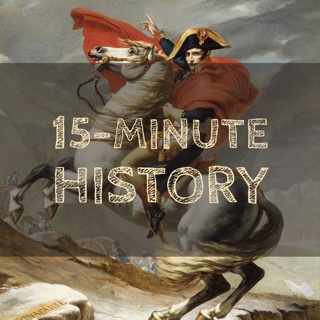
Legends of the Old West | The Life and Times of Wyatt Earp
Join us as we teach you about the life and times of Wyatt Earp.
18 Mars 201916min

What to Watch | A Discussion on the Best and Worst in Historical Movies
Join us as we discuss the good and the bad of historical movies.
25 Feb 201946min

What to Watch | The Best and Worst in Historical Movies
Join us as we teach you about the best and worst of historical movies.
25 Feb 201916min

War is Hell | A Discussion on William Tecumseh Sherman
Join us as we discuss William Tecumseh Sherman.
18 Feb 201922min

War is Hell | William Tecumseh Sherman
Join us as we teach you about William Tecumseh Sherman.
18 Feb 201916min

Blundering Into War | A Discussion on the War of 1812
Join us as we discuss the War of 1812.
11 Feb 201925min

Blundering Into War | The War of 1812
Join us as we teach you about the War of 1812.
11 Feb 201916min

The Corps of Discovery | A Discussion on The Lewis & Clark Expedition
Join us as we discuss the Lewis and Clark Expedition.
4 Feb 201916min




















